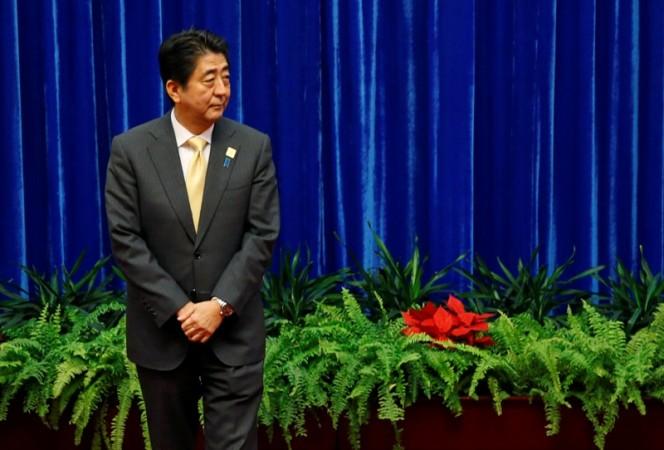
Japan's exports index rose to the highest level in eight months in October after the economy slid into recession three months ago.
The Finance Ministry of Japan declared that exports improved 9.6 percent to $56.7 billion, double the 4.5 percent gain forecast by analysts. Imports also gained 2.7 percent to $62.7 billion. The total trade deficit decreased 36 percent to $6 billion on a year-over-year basis, marking the 28th straight month of deficit.
The strong exports report could help bouy Japan's faltering economy. The country's economic performance took a backseat sliding for two consecutive quarters following Prime Minister Shinzo Abe's sales tax hike that hit consumer spending and businesses in April this year.
Japan's gain in exports was basically due to the drop in oil prices. The ministry said that exports of cars, steel and ships picked up pace considerably. Experts, however, expect slow growth as the Yen remains weak against the dollar and the slump in oil prices could drive it down lower.
"We expect the recovery in domestic demand to remain sluggish, which should keep import volumes subdued. But the export climate index has moderated lately, and no longer points to strong increases in export volumes, either," Marcel Thieliant, analyst at Capital Economics was quoted as saying by The Washington Post.
Minoru Nogimori, an economist at Nomura Securities told Bloomberg: "Imports will fall from November as declining petroleum prices offset the effect of the Yen's depreciation."
Shinzo Abe has been trying to tackle Japan's grim economic scenario since 2012. He proposed a three-point reform programme dubbed "Abenomics" wherein he would work on monetary, fiscal and structural reforms.
Abe's initial motive was to increase inflation by weakening the currency, which he has succeeded in. He also introduced the quantitative easing (QE) programme where the Bank of Japan pumped in about $65 billion into the economy.
Owing to the currency deflation and QE, Japan's employment conditions have improved and are in fact quite robust with more opportunities for job seekers.
But given the surprising third-quarter data, the opposition parties and the media is blaming "Abenomics" for the slide.
The positive exports report could come in handy for Abe. Just a day ago, the Japanese PM said that he would dissolve the House of Representatives by 27 November and call for an early election by 14 December. He also added that he would postpone the sales tax hike scheduled for October 2015 to April 2017.
"If he wins, Abe will buy about two-and-half years of time to pursue Abenomics, but would it be enough? The future of Abenomics and Japan is still up in the air," Masazumi Wakatabe said in his column for Forbes.

















